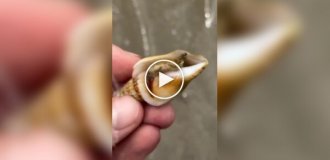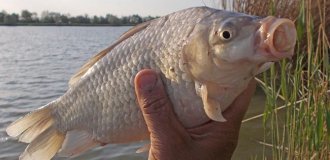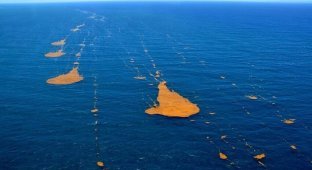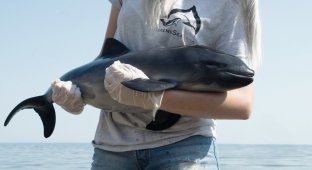Scorpionfish: a dangerous inhabitant of the Black Sea (8 photos)
Not all inhabitants of the Black Sea are safe for humans. The Black Sea ruffe or scorpionfish is considered one of the most dangerous among marine inhabitants. 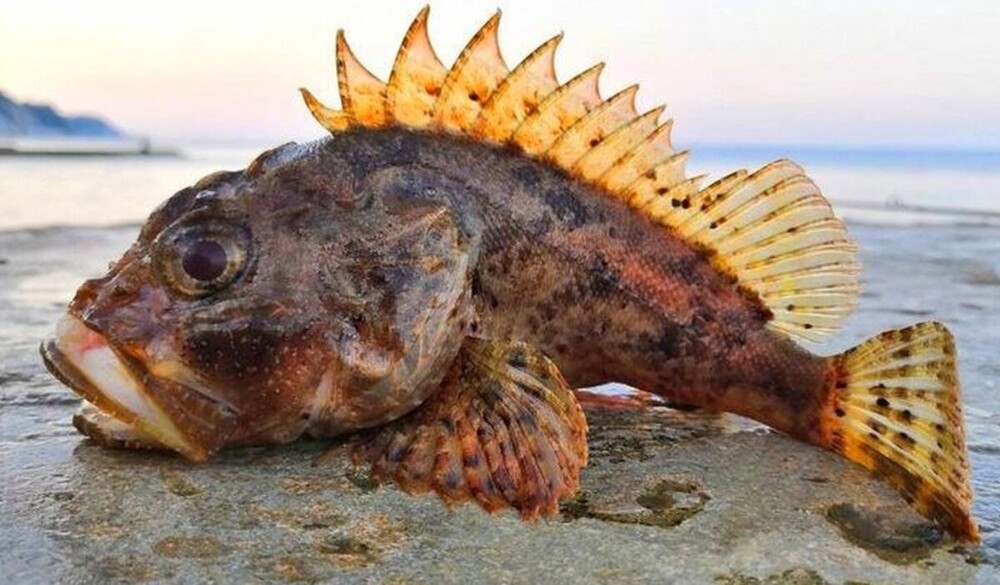
They say that while walking along the Black Sea coast, you can find a very unusual thing. On one side it looks like a woman's stocking, and on the other it looks like snake scales. Hoaxers believe that this is a secret message from the underwater Atlantean race. But we know: it’s just the skin of a Black Sea scorpionfish! Yes, these fish can molt! 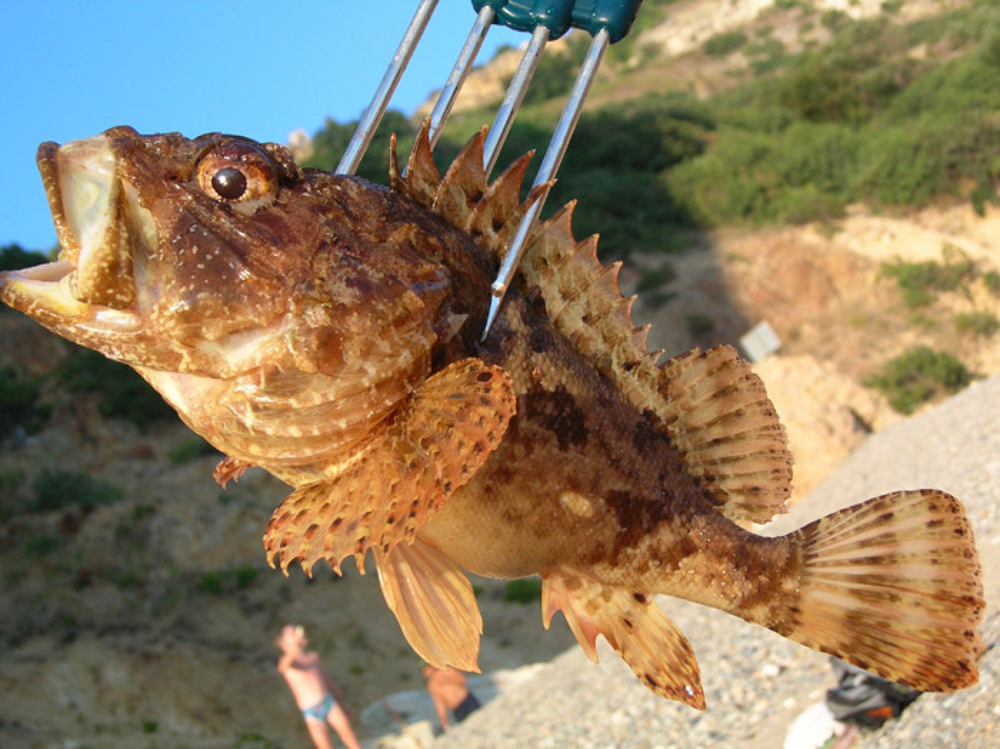
Black Sea scorpionfish-ruff, or scorpida. It turns out that few people know about its existence. Very in vain! Firstly, scorpionfish are quite interesting as a species: they seem to be just fish, but there are a lot of underwater nuances! Secondly, ruffs are dangerous for swimmers and divers, so you need to know about them for your own safety. Especially if you are going to relax on the Black or Mediterranean Seas. 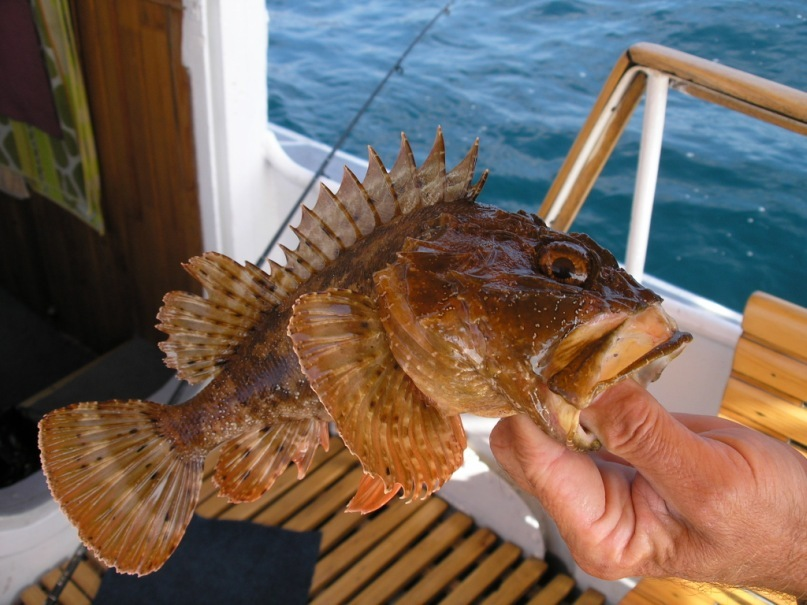
Remember the face of this criminal element!
At first glance, scorpionfish can be confused with a stone. On the second - with sea bass or lionfish - close relatives of the Black Sea fish. It’s not surprising, even an experienced ichthyologist can make a mistake here. This is because ruffs are better at camouflaging themselves than these ninjas of yours. This is why fish came up with the idea of shedding their skin. 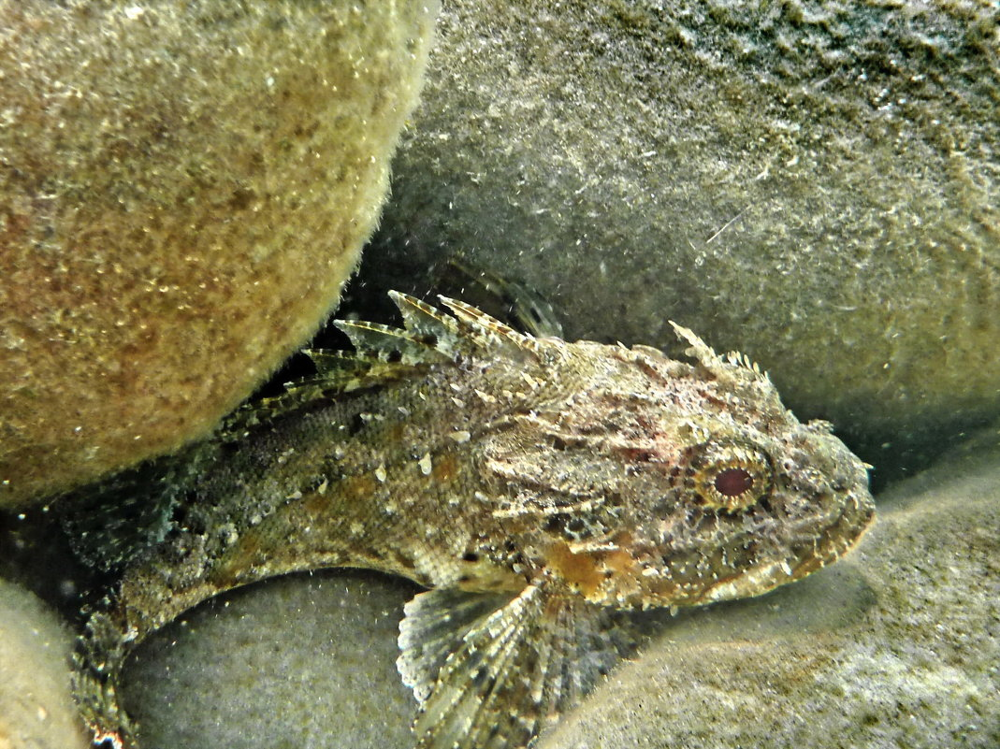
I'm just a pebble. Yes, with eyes. Yes, with spikes. What, you've never seen anything like this?
There is a change of image, much like that of snakes. But not once every six months, but a couple of times a month. It is a mistake to believe that fish shed their skin to grow: the size of scorpionfish is limited to 40 centimeters and almost a kilogram of weight. They do not grow any further, but they continue to change clothes all their lives. And repaint too! 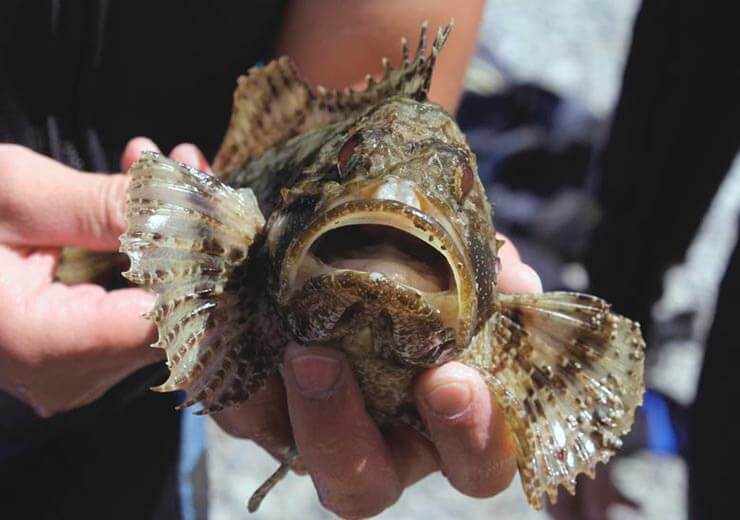
When you lay down for half an hour during the day and now you don’t understand who you are or what year it is.
If the scorpionfish sees that its outfit does not fit in with its surroundings, it changes its scales. Once a fish lives for a couple of days on a background that is lighter than itself, the special colored chromatophore cells in the thickness of the skin will begin to die. Also vice versa: the darker the area of the bottom where the fish lives, the faster the chromatophores multiply, and the fish turns black. Yes, the process of changing color in scorpionfish does not occur as quickly as in octopuses or cuttlefish, but they are in no hurry. Even without protective painting, it is unlikely that anyone will encroach on them. 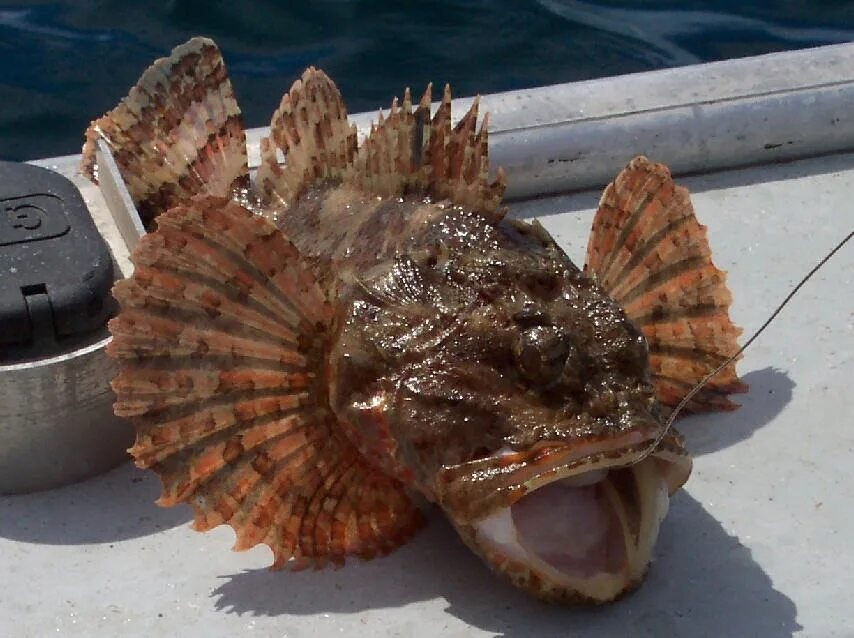
Do not eat me! I won’t fulfill your wishes, but I can shut you up with thorns!
This is because the carcass of the scorpionfish is completely strewn with sharp spines. And the needles on the ventral and anal fins even have poisonous glands! Few people can handle such a dinner: even people sometimes don’t take risks and release the Black Sea thorns back into the sea. Once under the skin, the toxin causes pain, inflammation, swelling and an allergic reaction. They say it is comparable to a wasp sting - painful, but not fatal. Therefore, when fishing for scorpionfish, you should be very careful, never pick them up with your hands - the fish’s spines can easily pierce even the thickest gloves. 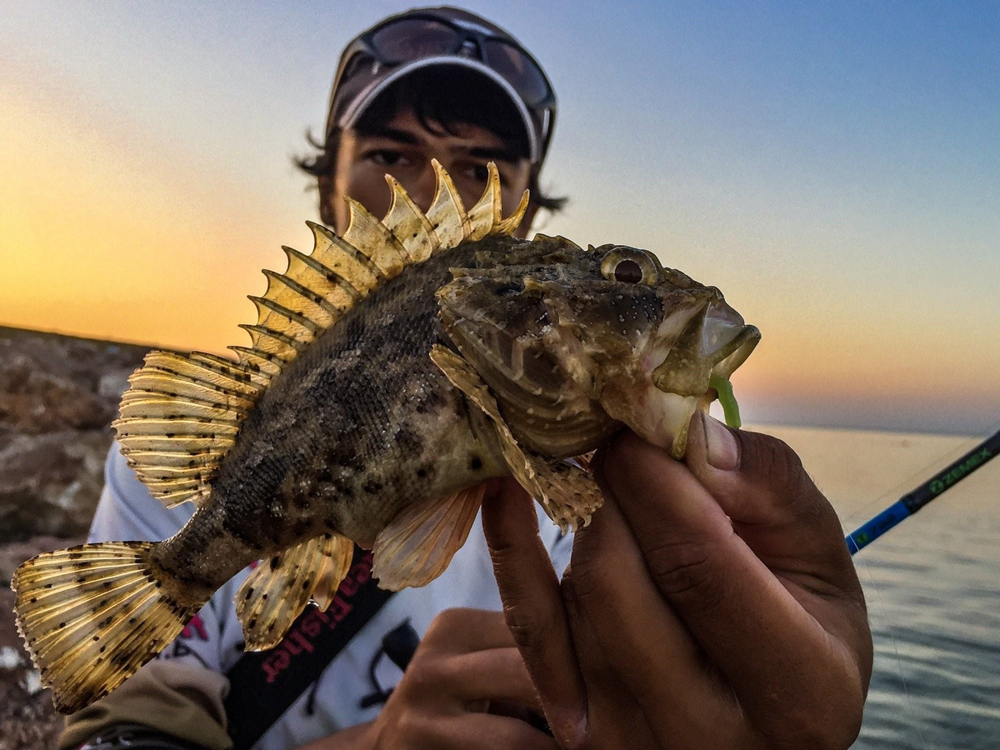
The safest place for a fish is its mouth.
If you still decide to find a chameleon fish, then look for it at your place of registration. The usual habitats of these comrades are the coastal zone, preferably with rocky terrain and algae. Scorpids rarely swim to a depth of more than 800 meters, but they often hunt at the very edge of the shore. 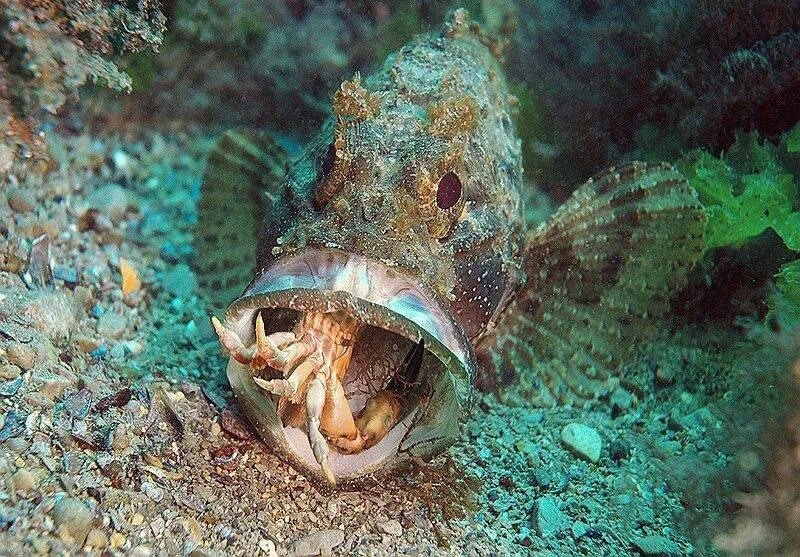
Scorpionfish can also have retractable mouths! Looks even more impressive than poisonous thorns!
To be sure to meet, go out searching after sunset: fish do not like the hustle and bustle of the day and definitely consider themselves owls. At night, scorpids hunt for all sorts of bottom-dwelling trifles. They can’t count on more: they know how to defend themselves, but they themselves are not experts in attacking. They have neither teeth nor swim bladders.







